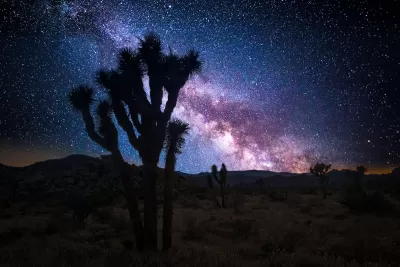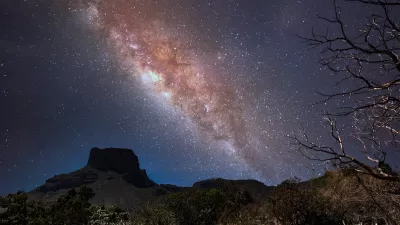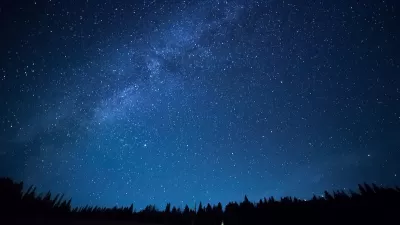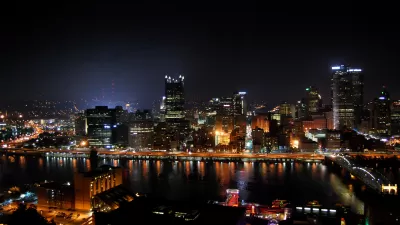Learn about the importance of dark skies for the health and enjoyment of individuals and wildlife, and how L.A. County's Rural Outdoor Lighting District is helping to reduce light pollution.

The dark sky movement seeks to reduce light pollution, generally defined as the unwanted, inappropriate, or excessive use of artificial light. The benefits of reducing light pollution include more stars being visible at night, reduced effects of electric lighting on the environment, improved well-being, health, and safety of people and wildlife, and decreased energy usage.
In Los Angeles County, the Rural Outdoor Lighting District (ROLD) promotes and maintains dark skies for the health and enjoyment of individuals and wildlife. Specifically, ROLD applies to rural unincorporated areas and includes requirements such as shielding and angling lights to avoid light pollution and light spilling onto adjacent properties. Individuals may also adopt lighting best practices to reduce light pollution in communities. For example, they can take actions such as turning exterior lights off by 10:00 pm, using motion sensors for lights at night, opting for subdued warm lighting, and only using the lights that they really need.
For more information, please visit this webpage created and maintained by the L.A. County Department of Regional Planning which includes resources such as brochures in multiple languages about the ROLD and videos explaining the importance of dark skies and how the ROLD helps to reduce light pollution.
FULL STORY: Rural Outdoor Lighting District Ordinance

Study: Maui’s Plan to Convert Vacation Rentals to Long-Term Housing Could Cause Nearly $1 Billion Economic Loss
The plan would reduce visitor accommodation by 25,% resulting in 1,900 jobs lost.

North Texas Transit Leaders Tout Benefits of TOD for Growing Region
At a summit focused on transit-oriented development, policymakers discussed how North Texas’ expanded light rail system can serve as a tool for economic growth.

Using Old Oil and Gas Wells for Green Energy Storage
Penn State researchers have found that repurposing abandoned oil and gas wells for geothermal-assisted compressed-air energy storage can boost efficiency, reduce environmental risks, and support clean energy and job transitions.

Private Donations Propel Early Restoration of Palisades Playground
Los Angeles has secured over $1.3 million in private funding to restore the Pacific Palisades playground months ahead of schedule, creating a modern, accessible space that supports community healing after recent wildfires.

From Blight to Benefit: Early Results From California’s Equitable Cleanup Program
The Equitable Community Revitalization Grant (ECRG) program is reshaping brownfield redevelopment by prioritizing projects in low-income and environmental justice communities, emphasizing equity, transparency, and community benefits.

Planting Relief: Tackling Las Vegas Heat One Tree at a Time
Nevada Plants, a Las Vegas-based nonprofit, is combating the city’s extreme urban heat by giving away trees to residents in underserved neighborhoods, promoting shade, sustainability, and community health.
Urban Design for Planners 1: Software Tools
This six-course series explores essential urban design concepts using open source software and equips planners with the tools they need to participate fully in the urban design process.
Planning for Universal Design
Learn the tools for implementing Universal Design in planning regulations.
Ascent Environmental
Borough of Carlisle
Institute for Housing and Urban Development Studies (IHS)
City of Grandview
Harvard GSD Executive Education
Toledo-Lucas County Plan Commissions
Salt Lake City
NYU Wagner Graduate School of Public Service





























